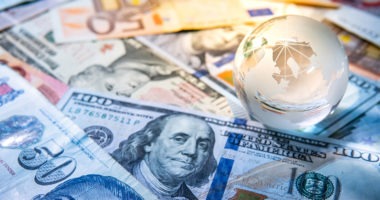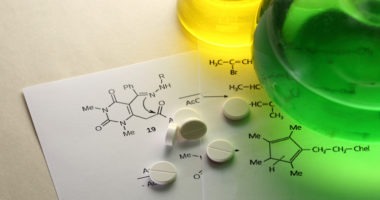Trend Lines: Pharma Mergers and Acquisitions
The pharmaceutical industry had 27 mergers and acquisitions (M&A) in the first quarter of 2017 with a total transaction value of nearly $34 billion, representing a decline in volume but an increase in value over recent quarters. So which deals are making the mark?
Johnson and Johnson’s pending acquisition of the Swiss pharmaceutical company Actelion is the leading deal thus far in 2017. How does that deal and others fit into overall trends for pharma M&A? DCAT Value Chain Insights looks at the numbers and deals.
Inside pharma M&A
Mergers and acquisitions (M&A) activity in the pharmaceutical industry in the first quarter of 2017 was up from the previous quarter and year over year. Global pharma and life sciences deal activity increased in value for the first quarter of 2017 compared to both the prior quarter and the first quarter of 2016, according to a recent PwC analysis. Despite declining volumes quarter over quarter, the pharmaceuticals sector led deal volumes with 27 deals in the first quarter of 2017, totaling approximately $33.9 billion in deal value, followed by the medical devices sector, which had 25 deals approximating a total deal value of $8.2 billion, according to the PwC study.
The largest transaction, contributing the majority of the value in M&A activity was Johnson & Johnson pending acquisition of the Swiss pharmaceutical company, Actelion for approximately $30 billion. Actelion is focused on the field of pulmonary arterial hypertension (PAH), a chronic, disorder characterized by abnormally high blood pressure in the arteries between the heart and lungs. It also has several drugs for treating specialist diseases, including Type 1 Gaucher disease, Niemann-Pick type C disease, digital ulcers in patients suffering from systemic sclerosis, and mycosis fungoides in patients with cutaneous T-cell lymphoma. The company was founded in 1997 and has more than 2,400 employees covering key markets around the world, including in Europe, the US, Japan, China, Russia, and Mexico.
Actelion’s PAH franchise leads the company’s product sales. Actelion’s PAH franchise encompasses oral, inhaled and intravenous formulations of compounds, for patients at various stages of the disease. For the first nine months of 2016, Acetlion’s product sales rose to CHF 1.785 billion ($1.75 billion), a 14% increase, year over year, at constant exchange rates (CER). In 2015, the company’s product sales crossed the $2 billion mark for the first time with sales of CHF 2.042 billion ($2.006 billion). Its top-selling product is Tracleer (bosentan), an orally available endothelin receptor antagonist for treating PAH, which posted 2015 sales of CHF 1.212 billion ($1.191 billion), an 18% decrease in Swiss francs and a 15% decrease at CER, as it faces generic competition. Its next-generation PAH drug is Opsumit (macitentan), introduced in 2013, with 2015 sales of CHF 516 million ($507 million).
Other drugs in its PAH franchise are: Uptravi (selexipag); Veletri (epoprostenol for injection); and Ventavis (iloprost). Uptravi was introduced in the US in January 2016 Uptravi, originally and was discovered and synthesized by Nippon Shinyaku. It is an oral, selective IP receptor agonist targeting the prostacyclin pathway in PAH. Veletri is an intravenous prostacyclin and is stable at room temperature, removing the need for patients to carry ice packs and posted 2015 sales of CHF 83 million ($82 million). Ventavis is an inhaled formulation of iloprost, a synthetic compound structurally similar to prostacyclin (PGI2) and marked by Actelion in the US and by Bayer elsewhere. Acetelion posted 2015 sales for the drug of CHF 105 million ($103 million).
Other noteworthy deals announced or closing in the first quarter were Takeda Pharmaceuticals’ approximate $5.1 billion acquisition of Ariad Pharmaceuticals, a deal that closed in February 2017, and Allergan’s approximate $2.4 billion acquisition of Zeltiq Aesthetics, Inc. , a medical technology company.
With the acquisition of Ariad, Takeda gained a potential noteworthy anti-cancer therapy. Earlier this month, Takeda Pharmaceutical received accelerated approval from the FDA for Alunbrig (brigatinib) for treating anaplastic lymphoma kinase-positive (ALK+) metastatic non-small cell lung cancer (NSCLC) in patients who have progressed on or are intolerant to crizotinib. Alunbrig is a targeted cancer medicine discovered by Ariad Pharmaceuticals. The drug has the potential to reach peak annual sales of more than $1 billion, according to Takeda. Alunbrig received breakthrough therapy designation from the FDA for this indication and was granted orphan drug designation for treating ALK+, ROS1+, and epidermal growth factor receptor positive NSCLC. A marketing authorization application was submitted to the European Medicines Agency in February 2017.In addition, Takeda gains another argeted rare-cancer therapy, Iclusig (ponatinib), a commercialized leukemia drug. Iclusig is approved for chronic myeloid leukemia and a subset of acute lymphoblastic leukemia. The drug had 2015 sales of $112.5 million. Takeda also gains a pipeline that includes targeted kinase inhibitors as well as Ariad’s translational science-based research and development platform.
Allergan boosts its medial aesthetics portfolio with Zeltiq Aesthetics, a Pleasanton, California-headquartered medical technology company that specializes in a proprietary controlled-cooling fat reducing treatment. With the acquisition, Allergan adds Zeltiq’s proprietary CoolSculpting System, a US Food and Drug Administration approved non-surgical cooling technology that affects appearance through lipolysis or reduction of unwanted fat. CoolSculpting is marketed in more than 80 countries with entry into additional markets expected in 2017 and 2018.
Venture capital funding
Looking at other financing activity into the pharmaceutical sector, venture-capital funding was also up in the first quarter of 2017 for the healthcare industry (inclusive of the biotechnology industry), according to the MoneyTree Report from PwC and the National Venture Capital Association. Overall across all industries, venture capitalists invested $13.9 billion in 1,104 deals in the first quarter of 2017 based on data provided by Thomson Reuters. Healthcare as a whole received the second largest amount of venture capital dollars behind the Internet with $3.7 billion going into 190 deals, representing an 86% increase in dollars invested and a 46% increase in the number of deals compared with the fourth quarter of 2016. According to the MoneyTree™ Report, healthcare deal share reached a multi-year high, representing 17% of all deals in the first quarter of 2017. The sector’s activity was fueled byvgrowth in the biotechnology and medical device/equipment spaces.






